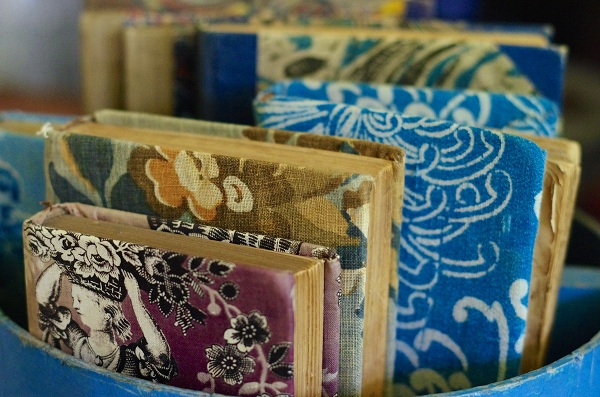
Feeling anxious? You are not alone. The Anxiety and Depression Association of America’s facts and statistics page reports (adaa.org) that anxiety disorders are the most common mental illnesses in the country. More than 40 million Americans ages 18 and older suffer from some type of anxiety disorder. Of those, only 36.9% seek treatment. After two years of dealing with the crippling fear of the Covid-19 pandemic and subsequent restrictions and losses associated with it, it is no surprise that many of us are carrying real, raw emotions. We can counter the negative effects of those feelings by learning to channel them into activities that promote wellbeing like meditation (dhikr), exercise, art, and/or writing.
The Muslim community is especially vulnerable to anxiety due to the political and social climate of the past two decades. Marginalized groups like American Muslims face daily discrimination based on nationality, race, origin, and immigration status. From our youngest to our oldest, we are living in a time of fear and strife. Anas ibn Malik reported that Prophet Muhammad, peace and blessings be upon him, warned, “A time of patience will come to people in which adhering to one’s religion is like grasping a hot coal.”
Certainly, it seems like the Prophet predicted what we are living now. To cope with this stress, we have the Quran and the Sunnah that our Prophet, peace and blessings be upon him, left behind. Reading and reflecting on the verses of the Quran or comparing our experiences with that of the Prophet can help us put things in perspective. In addition, we have other tools at our disposal that can help ease our worries. One of these is journaling.
Keeping a Journal
Keeping a journal or diary can be used in many ways to jot down thoughts, take notes, to monitor our eating or sleep patterns, or to keep bad habits in check. The benefits of journaling are endless. It promotes emotional wellbeing, encourages problem-solving (think writing out math problems vs. doing them in your head), helps reduce stress, and helps sort out thoughts. Expressive writing – or writing about what moves or bothers us – can help us cope with those emotions. Imagine that you are carrying a heavy load on your back while climbing a mountain. Each step you take feels weightier than the last as you struggle to stay on your feet. How would it feel if someone suddenly took the burden off your shoulders? That load you are carrying is your anxiety. Journaling is like removing the problem from within ourselves and transferring it onto paper. The relief you get can help you continue with your everyday responsibilities – climbing the mountain, but without the extra baggage.
Mental health experts and other medical professionals often recommend that patients keep a journal. It is no wonder a group of social psychology researchers from the University of Texas who created The Pandemic Project added a component of journal prompts to their research regarding people’s responses to the COVID-19 pandemic. Expressive writing is part of the exercises on their website, in which they provide prompts and ask participants to explore their deepest thoughts and feelings about the outbreak and how they are dealing with anxiety and isolation. They cite a study on their website that found that people who write about the most traumatic experiences of their lives for 15-20 minutes daily for 3-4 consecutive days show reduced doctor visits for illness, improvements in immune markers, and improvements in mental health over the next several months. How impactful would it then be to couple journaling with our five daily prayers that already help keep us grounded?
I personally use journaling as a way to express my emotions through poetry and prose, to keep track of creative thoughts, and to organize my writing. Whenever I am having any difficulty dealing with a stressor or I am feeling inspired, I either pull out my pocket journal or access my cell phone’s note app. I began keeping a journal at an early age and have continued the practice as an adult. Through the years, I have used journaling for different things like art, freewriting, songwriting, and poetry. Because I was able to preserve poetry I wrote for the past 20 years, I was even able to publish an anthology last year. It may seem daunting to a person who has never been in the habit of writing, but journaling can be simple and easy and not necessarily writing-based. There are a myriad of journals out there to choose from, some Muslim-owned companies even produce nice, high-quality journals and notebooks.

Different Types of Journals
There are many types of journals. Some are used for documenting things like art, dreams, fitness goals, recipes, diet, pregnancy, travel, and gardening. Whatever hobby or interests you may have, there is a journal for you. Another popular example is a gratitude journal. As Muslims, we know that being grateful is an act of praise and worship of Allah. One of my favorite verses from the Quran contains the words, “If you are grateful, I will certainly give you more.” Allah promises us that if we reflect on the good that we have and give thanks, then He will increase us in goodness. If we fail to be grateful, the opposite is true. Reminding ourselves of Allah’s favors through our journaling can help us remain hopeful and steadfast.
Start your journaling journey with “Bismillah” – in the name of Allah – and with the intention of easing your anxiety to focus on the things that are most important. Dhikr can keep both our tongues and papers moist with beautiful daily reflections. Likewise, our journals can wipe the tears away from our burning cheeks after a rough day. As Allah says in the Quran,
“Surely in the remembrance of Allah do hearts find comfort.” (Surah Ar-Ra’d 13:28)
Encourage your loved ones to keep a journal and reap the benefits of this habit, especially our youth. Tweens and teens, especially, can learn to cope with their own anxiety and insecurities through journaling. Giving them an outlet where they can vent their feelings in private with only Allah as their witness may be just the gift they need. Perhaps this healthy habit will last a lifetime, inshaAllah.



Add new comment